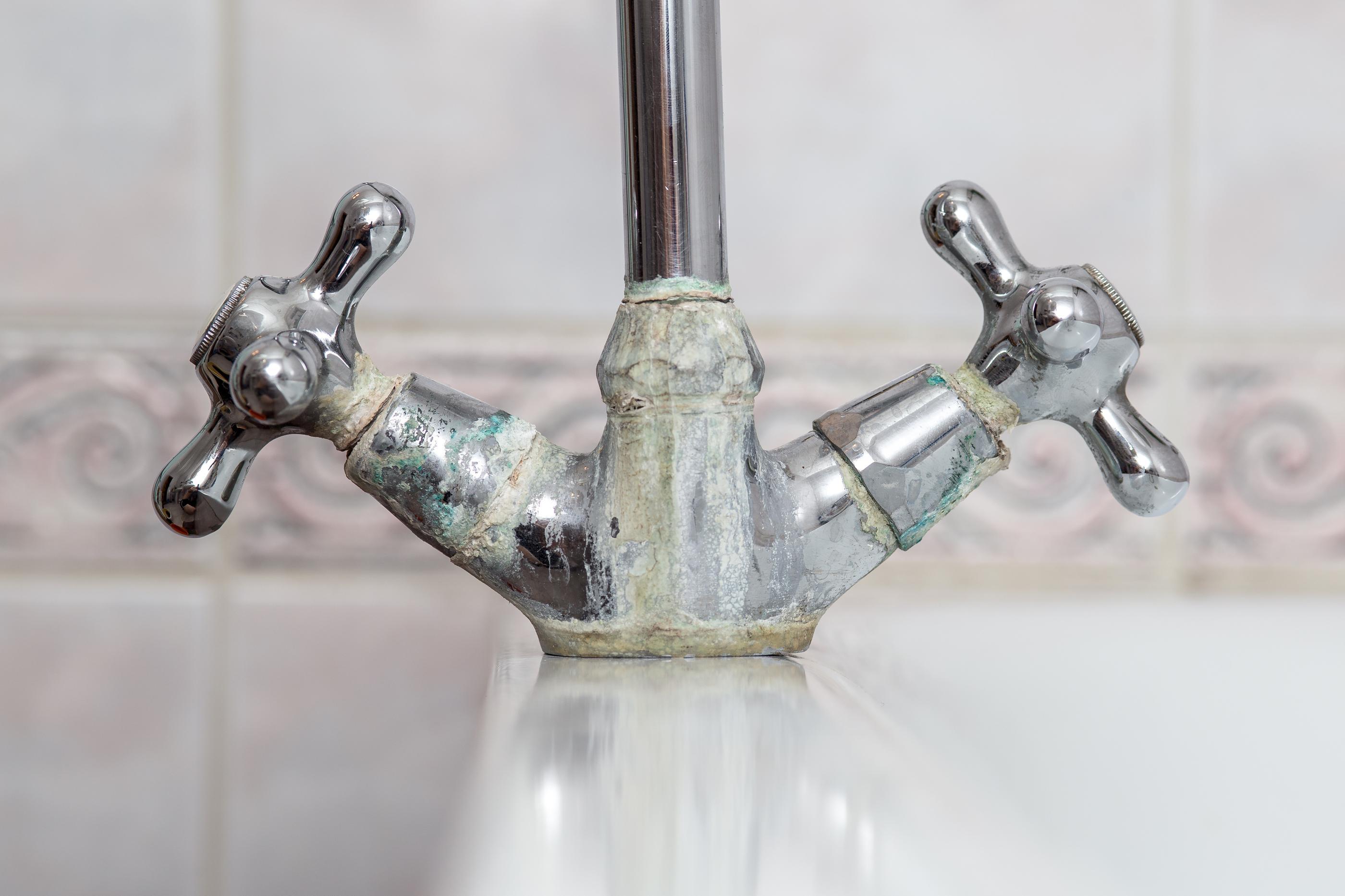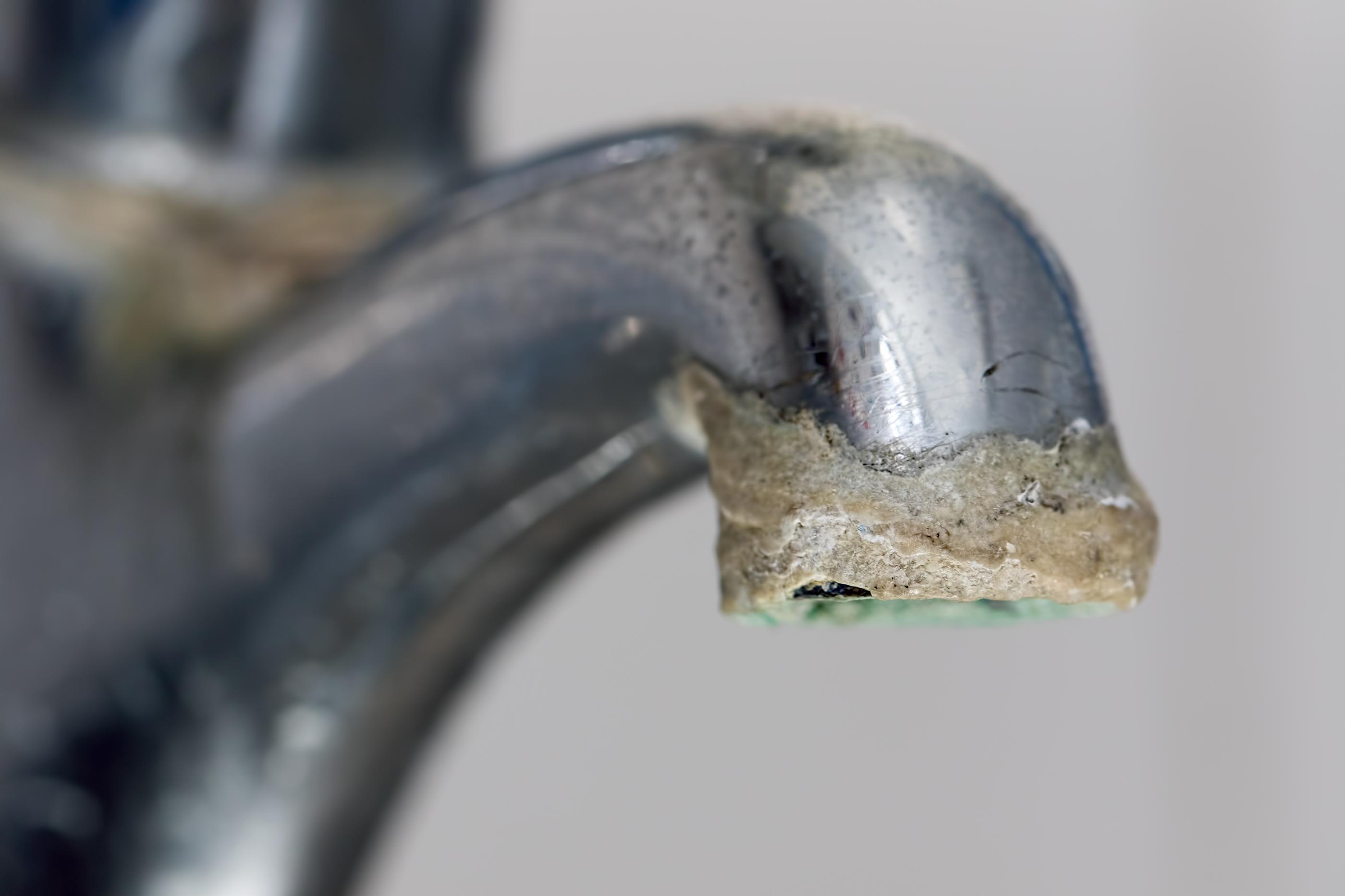
Learning how to remove and prevent limescale is essential for many Port St. Lucie homeowners, and those throughout the state of Florida. If you have limescale, the signs are easy to spot: deposits that look like a white crust or chalk on your plumbing fixtures and appliances.
A hallmark of hard water, unaddressed limescale can do some serious (and expensive) damage.
Limescale can block pipes and faucets, reduce your water pressure, and lead to frequent repairs or replacement of your appliances. Even worse, limescale can have an impact on your health too, leading to dull hair and irritation of sensitive skin.
Luckily, you can safely and easily learn to clean up and then stop (or at least reduce) limescale buildup at home. Let’s start with what limescale is.
What is Limescale?
Limescale is the residue left behind from hard water. Hard water is rich in minerals and salts, while soft water has been “softened,” a process where the highly concentrated minerals are removed. After hard water stands and evaporates, the minerals it contains stay behind.
These dissolved minerals solidify and form the limescale and stains you see on your appliances and in your pipes. From toilets to sinks, to water systems, limescale buildup can cause homeowners problems including poor water quality and taste, reduced flow, blocked pipes, and damage that may cause reduced lifespan for your appliances.
That kind of damage also causes your water heater to be inefficient, which increases energy bills as it takes longer, and your machine has to work harder to heat water.
Not to mention, it looks terrible and is hard to clean up.
How to Remove Limescale

If you can see visible signs of limescale buildup in your toilet, your kitchen, bathtub, pipes or anywhere in your homes water system, you can remove the limescale deposits with some items you might already have in the house.
Mildly acidic solutions are your best option for removal.
- Shower Heads, Faucets, Tiles, and Smooth Surfaces: Create a solution of lemon juice or vinegar mixed with water. Apply this mixture directly to the affected areas, let it sit for a while, and then scrub gently. This works well on shower heads, faucets, tiles, and other smooth surfaces where limescale accumulates.
- Homemade Cleaning Paste for Taps and Faucets: Mix one cup of water with three tablespoons of baking soda to form a paste. This can be applied to taps and faucets. Leave it on for a few hours or overnight for tough deposits, then rinse and wipe clean.
- Toilet Bowl Treatment: Pour 4 cups of vinegar into the toilet bowl and let it sit overnight without flushing. This allows the vinegar to break down the limescale. In the morning, use a toilet brush to scrub the bowl, focusing on areas with limescale deposits.
- Kettles and Coffee Makers: Regularly descale kettles and coffee makers by running a mixture of equal parts vinegar and water through the appliance. After descaling, run a couple of cycles with plain water to remove any vinegar residue and taste.
- Washing Machines: Use a commercial water softener tablet or a homemade solution. If using a homemade solution, run an empty cycle with a mix of vinegar and water to break down limescale deposits.
Remember, prevention is key to minimizing limescale buildup. Regular cleaning and maintenance, along with possibly investing in a water softener system, can significantly reduce the occurrence of limescale, ensuring the longevity and efficiency of your appliances and plumbing. Additionally, always consult your appliance's manual for specific cleaning recommendations to avoid any damage.
How to Prevent Limescale
Dealing with limescale once it has formed can be challenging, so the best approach is to prevent its buildup in the first place. That means, addressing hard water issues is your best solution. By addressing the hard water issue, you can significantly reduce limescale formation, thereby protecting your appliances, plumbing, and improving water quality.
Here are some effective strategies to prevent limescale:
- Install a Water Softener: This is one of the most effective methods to combat hard water. Water softeners remove the minerals that cause limescale. Not only does this prevent limescale buildup, but it also helps your appliances, like dishwashers and washing machines, run more efficiently and last longer. Regular maintenance of the water softener is essential to ensure its effectiveness.
- Use Water Filters: Installing water filters on your faucets or taps can help remove some of the minerals found in hard water. While not as thorough as a water softener, they are a more affordable option and can be effective in reducing limescale formation in drinking water and cooking.
- Magnetic Water Conditioner and Descaler System: This system provides a chemical-free option for treating hard water. It works by magnetizing the water, altering the properties of the minerals so that they are less likely to form scale. These systems are easy to install and maintain, and are an eco-friendly solution.
Additional Tips:
- Regularly Clean and Maintain Appliances: Regular descaling of appliances like kettles, coffee makers, and irons can help prevent limescale buildup. Follow the manufacturer’s instructions for the best cleaning methods.
- Consider Phosphate Additives: Some dishwasher detergents contain phosphate additives that can help in preventing limescale. Check for detergents specifically designed for hard water.
- Regularly Check Plumbing Fixtures: Keep an eye on faucets, showerheads, and pipes for early signs of limescale. Early detection can make removal easier.
- Temperature Control: Limescale formation is more rapid at higher temperatures. So, setting your water heater at a slightly lower temperature can help reduce limescale buildup.
Limescale Prevention in Port St. Lucie

While you can treat limescale at home, you don’t want to continue dealing with the negative effects of hard water. Removing and preventing limescale today is much more affordable than replacing pipes and appliances due to buildup.
The local plumbing experts at Benjamin Franklin Plumbing can test your water and go over your options to prevent limescale and treat hard water. Our experienced plumbers can also install water softeners or other treatment options quickly and easily.
Your water is in good hands with the experienced professionals at Benjamin Franklin Plumbing. Contact us today to make limescale a thing of the past.

 Your Privacy Choices
Your Privacy Choices